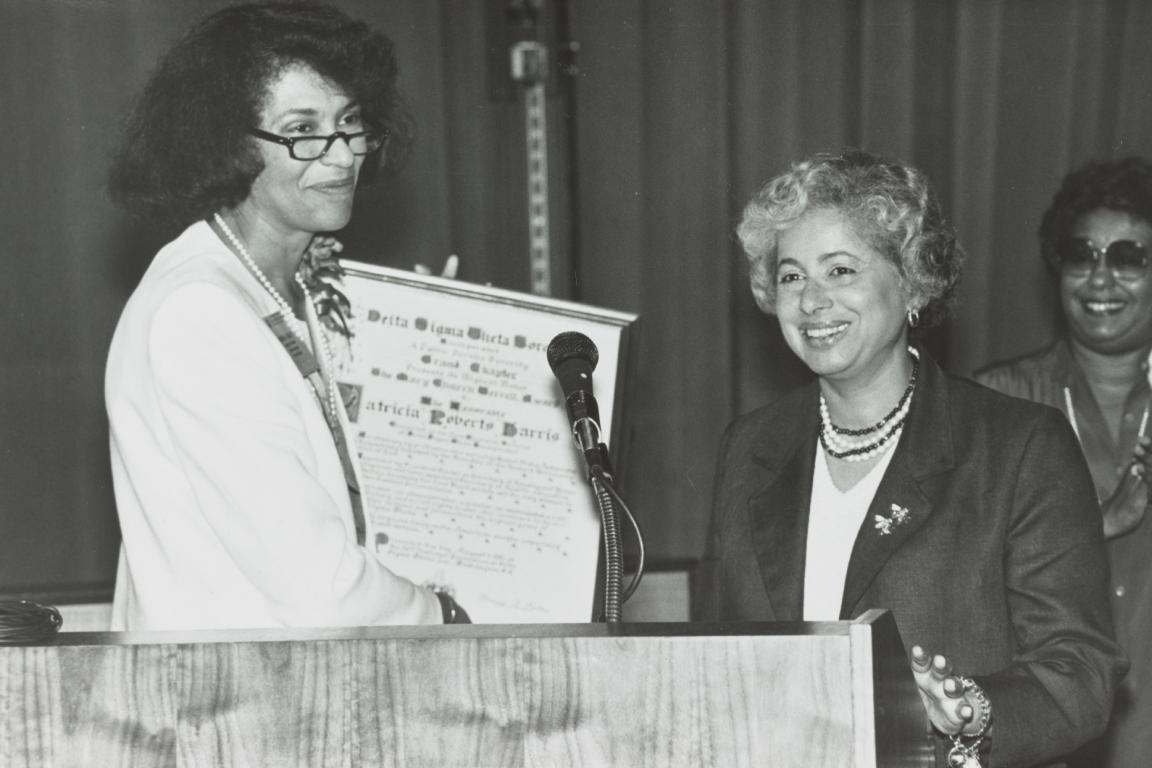Patricia Roberts Harris, a name synonymous with resilience, intellect, and groundbreaking achievements, emerged from relative obscurity into the spotlight through the lens of Black Women on Boards (BWOB). In their groundbreaking documentary, “On Board,” the world was introduced to the formidable Patricia Roberts Harris, the very first Black woman to grace the boardroom of a Fortune 500 company. Born to a railroad dining car waiter on May 31, 1924, in Illinois, she went on to create an indomitable legacy.
Here are five things about Patricia Harris that you may not know:
- Triumph Over Racial Segregation
In an era marked by the oppressive forces of racial segregation, Patricia Roberts Harris defied the odds by receiving not just one but five college scholarship offers. Her remarkable journey began at Howard University, where she graduated summa cum laude with a bachelor’s degree in Political Science and Economics. Her thirst for knowledge led her to the University of Chicago to study industrial relations, and she distinguished herself as the top student at the George Washington University Law School in 1960.
2. A Catalyst for Change
Patricia Harris was not merely an academic standout but a passionate advocate for civil rights and public rights. Her activism commenced at Howard University as a member of the NAACP, where she actively participated in groundbreaking demonstrations against racial discrimination. She continued her crusade at American University, where she worked as the Assistant Director of the American Council on Human Rights, tirelessly fighting for anti-discrimination legislation. Her commitment to corporate responsibility as a catalyst for social progress shone through her tenure as the Executive Director of Delta Sigma Theta, a historically Black sorority, from 1953 to 1959.
3. The Unintended Journey to Law
Although her initial aspiration was to become an educator, Patricia Roberts Harris was compelled to pivot from her dream due to the oppressive racial climate of her time. Encouraged by her husband, William Harris, she embarked on a new path in the field of law, ultimately gaining admission to the District of Columbia bar and the United States Supreme Court. This pivotal transition led her to the distinguished firm Fried, Frank, Harris, Shriver & Jacobson in Washington, DC. In 1971, she broke barriers by becoming the first Black American woman to sit on the board of directors of IBM, a Fortune 500 company.
4. Dean of Howard School of Law
Following her service in the US Department of Justice’s criminal division, Patricia Roberts Harris returned to Howard University, where she had initially begun her academic journey. She steadily climbed the ranks, assuming roles such as associate dean of students and a full professor in 1963. In 1969, she shattered another glass ceiling by becoming the First Female Dean at the Howard School of Law.
5. Diplomacy and Public Service
Patricia Roberts Harris’s impact transcended borders and agencies. Her unwavering dedication to public service led her to serve as Ambassador to Luxembourg, appointed by President Lyndon Johnson in 1965. This historic appointment made her the first African American woman to hold such a prestigious position. In 1977, President Carter appointed her as Secretary of Housing and Urban Development (HUD), and in 1979, she assumed the role of Secretary of Health, Education, and Welfare, overseeing the largest Cabinet agency. Notably, this appointment made her the first Black woman to enter the Presidential line of succession.
6. Untimely Death
In 1982, Harris bid an unsuccessful ran for Mayor of Washington, when she lost the Democratic primaries to the incumbent Barry Marion. She then left politics and returned to her teaching profession, serving as a professor at George Washington University Law School until the time of her death on 23rd March, 1985, from Breast Cancer at the age of 60 years.
The life and accomplishments of Patricia Roberts Harris serve as a source of inspiration and a testament to the enduring power of determination, resilience, and a commitment to advancing civil rights and equality. Her legacy continues to illuminate the path for future generations, reminding us that barriers can be broken, and change can be forged through dedication to justice and progress.




